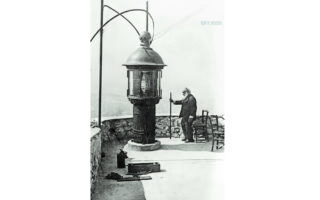The US assessment of the Greek-Turkish crisis of 1987

It’s been 35 years since Greece and Turkey came close to war over the disputed continental shelf between the two countries, oil exploration and a planned Turkish “research” ship’s drilling in disputed waters.
In a classified report written a few months after the crisis, a US military analyst, Harry Dinella, that Greece and Turkey would fight to a standstill at their shared land border in Thrace; that Greece was capable, thanks to its naval and air superiority in the Aegean, of defending all its major islands, forcing Turkey to seek to capture a smaller island such as Kastellorizo; and that Turkey had a decisive advantage in Cyprus that Greece could not defend against.
Then-Prime Minister Andreas Papandreou, a Socialist deeply skeptical of US motives, despite – or because of – having lived there for over 20 years, suspected the Americans were behind Turkey’s move. He ordered the closure of the now-defunct US naval communications base in Nea Makri, near Athens, placed the armed forces in a state of high alert, mobilized reserves to an extent matched only in 1974, when Turkey invaded Cyprus, and sent Foreign Minister Karolos Papoulias to Bulgaria to send the message that, if attacked, Greece will ask to join the Soviet-led Warsaw Pact. All these years later, we don’t know if he really meant that or planned to use it as a scare tactic.
The crisis started when a Canadian-owned firm drilling for oil in Greek waters decided to expand its drilling eastward, violating a tacit 1975 agreement between the two countries to avoid drilling in disputed continental shelf areas. Greece blocked the move, but Turkey decided to send the Piri Reis research ship to those areas, with Greece threatening action.
In the end, both countries pulled back and both claimed victory. The Piri Reis did go out in the Aegean but ended up hugging the Turkish coastline, never leaving Turkey’s 6-mile territorial water zone. And the two countries still have not settled their dispute over the continental shelf.





